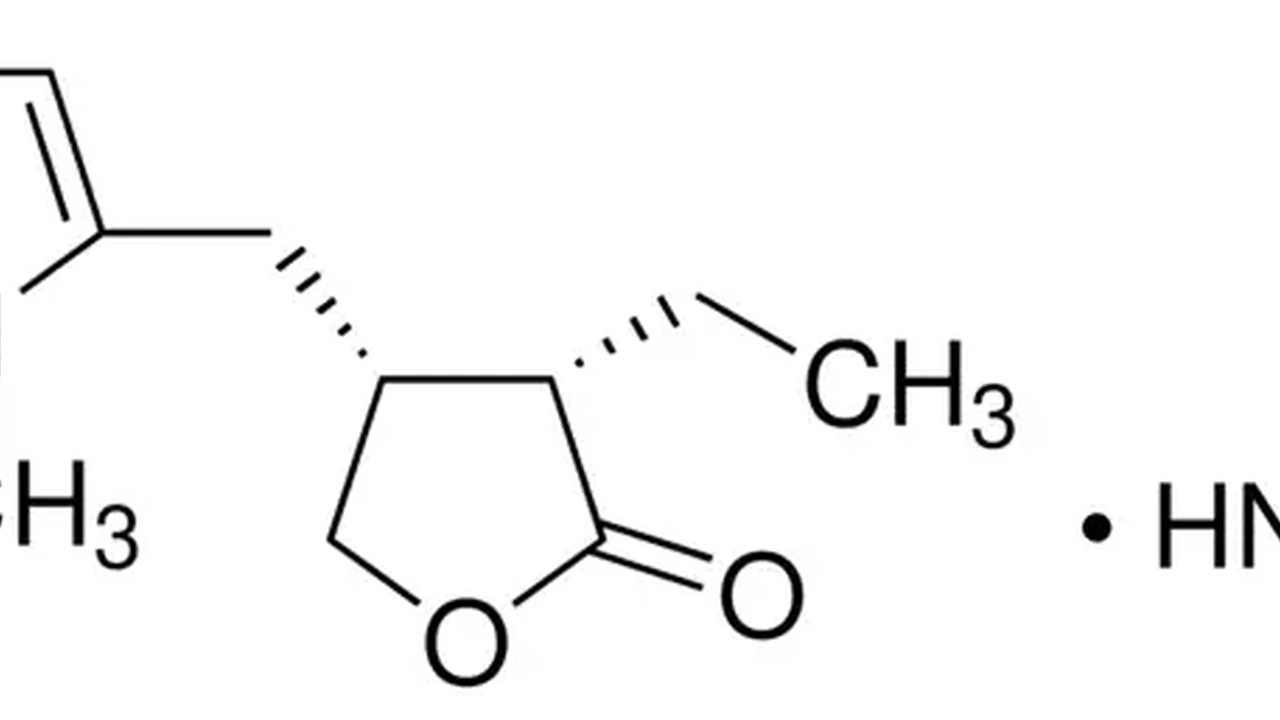5 Common Small Pet Health Problems and Solutions
Identify 5 common small pet health problems and their solutions. Keep your small animal healthy.

5 Common Small Pet Health Problems and Solutions
Hey there, small pet parents! We all love our tiny companions, whether they're hamsters, guinea pigs, rabbits, ferrets, or even pet rats. They bring so much joy and personality into our homes. But just like any other pet, small animals can face a range of health issues. Knowing what to look out for and how to react can make all the difference in keeping your little friend happy and healthy. This comprehensive guide will walk you through five of the most common health problems in small pets, offering practical solutions, product recommendations, and advice on when to seek veterinary care. Let's dive in!
Respiratory Infections in Small Pets Symptoms and Treatment
Respiratory infections are unfortunately quite common in many small animals, especially guinea pigs, rabbits, and rats. These can range from mild sniffles to severe, life-threatening pneumonia. They are often caused by bacteria, viruses, or even environmental factors like dusty bedding or poor ventilation.
Recognizing the Signs of Respiratory Distress
How do you know if your small pet has a respiratory infection? Keep an eye out for these symptoms:
- Sneezing and Nasal Discharge: This is often one of the first signs. The discharge might be clear, white, or even yellowish-green in more severe cases.
- Wheezing or Labored Breathing: You might hear a clicking, crackling, or whistling sound when your pet breathes. Their sides might also heave noticeably.
- Lethargy and Reduced Appetite: A sick pet will often be less active and may refuse to eat or drink.
- Matted Fur Around the Face: This can be due to nasal discharge or excessive pawing at their face.
- Eye Discharge: Some infections can also cause watery or crusty eyes.
Effective Treatment and Prevention Strategies
If you suspect a respiratory infection, the first and most crucial step is to contact your exotic veterinarian immediately. Small pets can go downhill very quickly, so prompt treatment is essential. Your vet will likely prescribe antibiotics, which might be given orally or through injections. They may also recommend supportive care, such as:
- Warmth: Keeping your pet warm can help them conserve energy.
- Hydration: Encourage drinking or offer fluids via a syringe if necessary.
- Nutritional Support: Offer favorite foods or critical care formulas if they're not eating.
Prevention is key! Here are some tips:
- Maintain a Clean Environment: Regularly clean cages to prevent ammonia buildup from urine, which can irritate respiratory tracts.
- Choose Appropriate Bedding: Avoid dusty beddings like cedar or pine shavings, which can cause respiratory irritation. Opt for paper-based, aspen, or fleece bedding.
- Good Ventilation: Ensure your pet's enclosure has good airflow without being drafty.
- Proper Nutrition: A healthy diet boosts the immune system.
- Minimize Stress: Stress can weaken the immune system, making pets more susceptible to illness.
Recommended Products for Respiratory Health Support
While these products are not a substitute for veterinary care, they can help support your pet's respiratory health and recovery:
1. Oxbow Critical Care Herbivore
Description: This is a premium recovery food for herbivores that are unwilling to eat their normal diet due to illness, surgery, or lack of appetite. It's packed with essential nutrients and fiber.
Usage: If your pet is lethargic and not eating due to a respiratory infection, this can be syringe-fed to provide vital calories and hydration. It's easy to mix with water to a desired consistency.
Comparison: There are other critical care formulas, but Oxbow is widely recommended by exotic vets for its palatability and nutritional completeness for herbivores.
Estimated Price: $15-$25 for a 141g bag.
Where to Buy: Pet specialty stores, online retailers like Chewy or Amazon.
2. Carefresh Small Pet Bedding
Description: Carefresh is a popular brand of soft, absorbent, and virtually dust-free paper bedding. It's designed to be safe for small animal respiratory systems.
Usage: Use as primary bedding in your pet's enclosure to reduce airborne dust and allergens that can exacerbate respiratory issues.
Comparison: Compared to wood shavings (especially cedar/pine), Carefresh is much safer. Other paper-based beddings like Kaytee Clean & Cozy are also good alternatives, often differing slightly in texture and absorbency.
Estimated Price: $15-$30 for a large bag (varies by size).
Where to Buy: Most pet stores, supermarkets, online retailers.
Dental Problems in Small Animals Overgrown Teeth and Malocclusion
Dental issues are incredibly common in small pets, particularly rabbits, guinea pigs, and chinchillas, whose teeth grow continuously throughout their lives. If their teeth don't wear down properly, they can become overgrown, leading to a condition called malocclusion.
Identifying Signs of Dental Discomfort
Dental problems can be painful and lead to serious health complications. Watch out for these indicators:
- Difficulty Eating or Anorexia: Your pet might drop food, chew slowly, or stop eating altogether due to pain.
- Drooling or Wet Chin: Overgrown incisors can prevent the mouth from closing properly, leading to drooling.
- Weight Loss: If they can't eat, they'll lose weight rapidly.
- Pawing at the Mouth: A sign of discomfort.
- Eye Discharge or Bulging Eyes: In rabbits and guinea pigs, overgrown molar roots can grow into the jawbone and even affect tear ducts or eye sockets.
- Changes in Fecal Output: Reduced food intake means less poop, which can lead to gastrointestinal stasis, especially in rabbits.
Solutions for Maintaining Optimal Dental Health
Regular veterinary check-ups are crucial for early detection. If malocclusion is diagnosed, your vet will likely recommend:
- Dental Trimming/Burring: This procedure, often done under anesthesia, involves carefully filing down overgrown teeth. It's not a one-time fix; it usually needs to be repeated periodically.
- Dietary Adjustments: Ensuring a high-fiber diet is paramount for natural tooth wear.
To prevent dental problems:
- Provide Unlimited High-Quality Hay: For rabbits and guinea pigs, hay should make up 80-90% of their diet. Chewing hay grinds down their molars.
- Offer Safe Chew Toys: Wood blocks, willow balls, and other safe chew toys can help wear down incisors.
- Limit Pellets and Sugary Treats: These don't provide enough abrasive action for teeth and can lead to obesity and other health issues.
Essential Products for Dental Care and Enrichment
Here are some products that can aid in maintaining your small pet's dental health:
1. Timothy Hay by Oxbow or Small Pet Select
Description: High-quality, fresh Timothy hay is the cornerstone of a rabbit or guinea pig's diet. It's rich in fiber and essential for dental and digestive health.
Usage: Offer unlimited amounts daily. Place it in a hay rack or feeder to keep it clean and accessible.
Comparison: Oxbow and Small Pet Select are both excellent brands known for their fresh, green, and fragrant hay. Small Pet Select often offers different cuts (1st, 2nd, 3rd) which can cater to different preferences. Avoid dusty or yellow hay.
Estimated Price: $20-$40 for a large box/bag (varies by weight).
Where to Buy: Online retailers (Chewy, Amazon, Small Pet Select website), pet specialty stores.
2. Apple Sticks or Willow Chews
Description: Natural, untreated wood chews like apple sticks or willow branches provide a safe and enjoyable way for small pets to wear down their incisors.
Usage: Place a few in the cage for your pet to gnaw on. Replace them when they become too small or soiled.
Comparison: Many brands offer these. Ensure they are specifically marketed for small pets and are free from pesticides or harmful chemicals. Willow is generally softer than apple wood.
Estimated Price: $5-$15 for a pack.
Where to Buy: Pet stores, online retailers.
3. Hay Feeder or Rack
Description: A simple device to hold hay, keeping it off the cage floor and preventing it from becoming soiled with urine or feces.
Usage: Fill with fresh hay daily. Encourages continuous hay consumption.
Comparison: Various designs exist, from simple wire racks to more elaborate plastic feeders. Choose one that is easy to clean and allows your pet easy access to the hay without getting stuck.
Estimated Price: $10-$25.
Where to Buy: Pet stores, online retailers.
Gastrointestinal Stasis in Rabbits and Guinea Pigs Understanding and Management
Gastrointestinal (GI) stasis is a life-threatening condition primarily seen in rabbits and guinea pigs, where the normal movement of food through the digestive tract slows down or stops completely. This can lead to a buildup of gas, pain, and ultimately, organ failure if not treated promptly.
Recognizing the Critical Signs of GI Stasis
GI stasis is an emergency. Look for these signs:
- Anorexia (Not Eating): This is often the first and most critical sign.
- Lack of Feces or Smaller/Misshapen Feces: If your pet isn't eating, they won't be pooping normally.
- Lethargy and Hunching: They might be hunched over in pain, reluctant to move.
- Abdominal Bloating or Gurgling: Their belly might feel hard or distended, and you might hear loud gurgling sounds (or no sounds at all, which is also concerning).
- Grinding Teeth (Bruxism): A sign of pain.
Emergency Solutions and Long-Term Prevention
If you suspect GI stasis, contact your exotic vet immediately. This is not a condition you can treat at home. Treatment typically involves:
- Pain Medication: To alleviate discomfort.
- Motility Drugs: To help stimulate the gut.
- Fluid Therapy: To rehydrate and help move gut contents.
- Assisted Feeding: Syringe-feeding critical care formula to get food moving again.
- Abdominal Massage: Gentle massage can sometimes help.
Prevention is crucial:
- High-Fiber Diet: Unlimited hay is essential.
- Adequate Hydration: Ensure constant access to fresh water.
- Regular Exercise: Keeps the digestive system moving.
- Minimize Stress: Sudden changes, loud noises, or new environments can trigger stasis.
- Grooming: For rabbits, regular grooming helps prevent hairballs, which can contribute to blockages.
Supportive Products for Digestive Health
These products can help maintain a healthy gut and support recovery from GI stasis (always under vet guidance):
1. Bene-Bac Plus Pet Gel
Description: A probiotic supplement containing live, naturally occurring microorganisms. It helps restore beneficial gut bacteria, especially after antibiotic use or during stress.
Usage: Can be given orally during times of stress, after antibiotic treatment, or as directed by your vet during recovery from GI stasis. It helps re-establish a healthy gut flora.
Comparison: There are other probiotic brands, but Bene-Bac Plus is a well-regarded option for small animals. Always check that the product is suitable for your specific pet species.
Estimated Price: $10-$20 for a 15g tube.
Where to Buy: Pet stores, vet clinics, online retailers.
2. Critical Care Herbivore (again!)
Description: As mentioned before, this recovery food is vital for pets not eating. It provides essential fiber and nutrients.
Usage: Absolutely critical for syringe-feeding during GI stasis recovery to keep the gut moving and provide energy. Follow your vet's instructions on frequency and amount.
Comparison: Its high fiber content and palatability make it superior to simply blending pellets, which often lack the necessary fiber profile for recovery.
Estimated Price: $15-$25 for a 141g bag.
Where to Buy: Pet specialty stores, online retailers.
3. Water Bottle or Ceramic Water Bowl
Description: Ensuring constant access to fresh water is paramount for digestive health.
Usage: Provide multiple water sources. Some pets prefer bottles, others bowls. Clean daily.
Comparison: Bottles keep water cleaner but can sometimes clog or leak. Bowls are more natural but can get soiled. Offering both is often ideal.
Estimated Price: $5-$20 depending on type and size.
Where to Buy: Any pet store, online.
Skin Issues in Small Pets Mites Fungal Infections and Allergies
Skin problems are another common complaint among small pet owners. These can be caused by parasites, fungi, bacteria, or even environmental allergies. They can cause intense itching, discomfort, and secondary infections.
Detecting Skin Irritations and Parasites
Symptoms vary depending on the cause, but generally include:
- Excessive Scratching or Biting: Your pet might be constantly scratching, leading to hair loss.
- Hair Loss (Alopecia): Patches of fur missing, often with red, irritated skin underneath.
- Redness, Scabs, or Flaky Skin: Inflammation and skin damage.
- Dandruff-like Flakes: Can be a sign of mites.
- Lumps or Bumps: Could be abscesses, tumors, or reactions to bites.
- Changes in Behavior: Irritability or restlessness due to discomfort.
Effective Solutions for Healthy Skin and Coat
A vet visit is essential to diagnose the exact cause of the skin problem. Treatment will depend on the diagnosis:
- Parasite Treatment: For mites, fleas, or lice, your vet will prescribe appropriate medications (e.g., ivermectin, selamectin).
- Antifungals: For ringworm (a common fungal infection), topical or oral antifungals will be used.
- Antibiotics: For secondary bacterial infections caused by scratching.
- Allergy Management: If allergies are suspected, identifying and removing the allergen is key. This might involve changing bedding, diet, or environmental factors.
Prevention tips:
- Regular Cage Cleaning: Reduces parasite load and allergen buildup.
- Quarantine New Pets: Always quarantine new animals to prevent introducing parasites or diseases.
- Proper Nutrition: A balanced diet supports skin and coat health.
- Avoid Irritating Bedding: As mentioned for respiratory issues, dusty or aromatic beddings can irritate skin.
Recommended Products for Skin and Coat Health
These products can help manage and prevent skin issues, but always consult your vet for diagnosis and treatment:
1. Revolution for Small Animals (Prescription Only)
Description: Selamectin-based topical medication effective against various external and internal parasites, including mites, fleas, and some worms. It's a prescription-only medication.
Usage: Applied topically to the skin, usually on the back of the neck. Follow vet instructions precisely for dosage and frequency.
Comparison: Revolution is a broad-spectrum antiparasitic. Other options like ivermectin (injectable or oral) are also used, but Revolution is often preferred for its ease of application and safety profile in many small species.
Estimated Price: Varies significantly by vet and dosage, but typically $20-$50 per dose.
Where to Buy: Exclusively from your veterinarian.
2. Mite and Lice Spray for Small Animals (e.g., Sentry, Pro-Pet)
Description: Over-the-counter sprays designed to kill mites and lice on small animals. Often contain pyrethrins or similar insecticides.
Usage: Follow instructions carefully. Spray directly on the pet, avoiding eyes and mouth. Can also be used to treat the cage environment.
Comparison: While convenient, these are generally less effective than prescription medications for severe infestations and may not be safe for all species or very young/old animals. Always check for species-specific safety and consult your vet before use.
Estimated Price: $10-$20 per bottle.
Where to Buy: Pet stores, online retailers.
3. Hypoallergenic Bedding (e.g., Fleece Liners)
Description: Fleece liners or other fabric beddings are dust-free and can be washed regularly, making them ideal for pets with allergies or sensitive skin.
Usage: Use as cage bedding. Wash frequently with a pet-safe, unscented detergent.
Comparison: Superior to dusty paper or wood beddings for allergy sufferers. While the initial cost might be higher, they are reusable, making them cost-effective long-term.
Estimated Price: $20-$50 for a set of liners (depending on cage size).
Where to Buy: Online specialty stores (e.g., Etsy for handmade), some pet stores.
Urinary Tract Issues in Small Pets Bladder Stones and Infections
Urinary tract problems, including bladder stones (urolithiasis) and infections (UTIs), are particularly common in guinea pigs and rabbits, but can affect other small pets too. These conditions are often painful and can lead to serious complications if left untreated.
Recognizing Signs of Urinary Distress
It's important to be vigilant for these symptoms:
- Straining to Urinate: Your pet might hunch over or make grunting noises while trying to pee.
- Frequent Urination or Dribbling: They might try to urinate more often, or pass only small amounts.
- Blood in Urine: This is a clear sign of a problem and requires immediate veterinary attention. The urine might appear pinkish or reddish.
- Pain or Discomfort: Your pet might cry out when picked up, be lethargic, or lose their appetite.
- Wetness Around the Genital Area: Due to dribbling or incontinence.
- Strong Odor to Urine: Can indicate an infection.
Solutions for Managing and Preventing Urinary Problems
If you notice any of these signs, a vet visit is crucial. Your vet will likely perform a urinalysis, X-rays, or ultrasound to diagnose the issue. Treatment options include:
- Antibiotics: For bacterial UTIs.
- Pain Medication: To manage discomfort.
- Dietary Changes: For bladder stones, a low-calcium diet might be recommended, especially for guinea pigs and rabbits.
- Surgery: In severe cases, especially with large bladder stones, surgical removal might be necessary.
Prevention is key, especially for stone formation:
- Adequate Hydration: Ensure constant access to fresh water. Encourage drinking by offering multiple water sources or adding a small amount of unsweetened fruit juice (like cranberry) to water for guinea pigs.
- Appropriate Diet: For guinea pigs and rabbits, limit high-calcium foods (e.g., alfalfa hay, kale, spinach, parsley in large quantities). Focus on Timothy hay and appropriate pellets.
- Vitamin C: For guinea pigs, ensure they get enough Vitamin C, as deficiencies can contribute to urinary issues.
- Clean Environment: Prevents bacterial infections.
Supportive Products for Urinary Health
These products can help support urinary health, but always under veterinary guidance:
1. Oxbow Natural Science Urinary Support
Description: A hay-based supplement designed to support the overall health of the urinary tract in small herbivores. It contains beneficial ingredients like cranberry and dandelion leaf.
Usage: Can be given daily as a preventative measure or as directed by your vet during recovery from urinary issues. It comes in palatable chewable tablets.
Comparison: This is a well-regarded supplement specifically formulated for small herbivores. Other brands might offer similar ingredients, but Oxbow is known for its quality and suitability for these species.
Estimated Price: $10-$15 for a 60-count bag.
Where to Buy: Pet specialty stores, online retailers.
2. Fresh Water Sources (Multiple Options)
Description: Providing both a sipper bottle and a heavy ceramic bowl ensures your pet always has access to water and can choose their preferred method.
Usage: Fill daily with fresh, clean water. Clean thoroughly to prevent bacterial buildup.
Comparison: Some pets prefer bottles, others bowls. Bottles are cleaner, but bowls allow for more natural drinking. Offering both maximizes hydration.
Estimated Price: $5-$20 per item.
Where to Buy: Any pet store, online.
3. Low Calcium Pellets (e.g., Oxbow Essentials Adult Rabbit/Guinea Pig Food)
Description: High-quality, Timothy hay-based pellets formulated with appropriate calcium levels for adult rabbits and guinea pigs.
Usage: Feed in limited quantities daily, as recommended for your pet's species and weight. This should complement, not replace, unlimited hay.
Comparison: Avoid alfalfa-based pellets for adult animals, as alfalfa is high in calcium. Oxbow and Small Pet Select offer excellent low-calcium options. Always check the ingredient list.
Estimated Price: $15-$30 for a large bag.
Where to Buy: Pet specialty stores, online retailers.
Obesity in Small Pets Causes Risks and Weight Management
Obesity is a growing concern in small pets, just as it is in humans and larger animals. It's often a result of an inappropriate diet, lack of exercise, or too many sugary treats. An overweight pet is at higher risk for a multitude of health problems.
Identifying an Overweight Small Pet
It can be tricky to tell if a small pet is overweight, but here are some clues:
- Difficulty Palpating Ribs/Spine: You should be able to feel your pet's ribs and spine easily without them being overly prominent. If you can't, they might be overweight.
- Reduced Activity: Overweight pets are often less active and may struggle with grooming.
- Fat Deposits: You might notice visible fat rolls, especially around the neck, shoulders, or hindquarters.
- Difficulty Moving: They might struggle to move around their cage or clean themselves.
- Changes in Body Shape: A 'pear' shape in guinea pigs or a very round body in hamsters can indicate excess weight.
Effective Weight Management and Prevention Strategies
If you suspect your pet is overweight, consult your vet to rule out any underlying medical conditions and to get a tailored weight loss plan. General strategies include:
- Dietary Overhaul:
- Increase Hay: For herbivores, unlimited high-quality hay is crucial.
- Limit Pellets: Reduce the amount of pellets offered daily. For rabbits and guinea pigs, this is typically 1/8 to 1/4 cup per day per 5 lbs of body weight.
- Eliminate Sugary Treats: No sugary fruits, yogurt drops, or commercial 'treat sticks.' Offer small amounts of appropriate fresh vegetables as treats instead.
- Appropriate Diet for Species: Ensure your pet is getting a diet specific to their needs (e.g., high protein for ferrets, specific seed mixes for hamsters, but in moderation).
- Increase Exercise:
- Larger Enclosure: Provide the largest possible cage to encourage movement.
- Daily Playtime: Offer supervised out-of-cage time in a safe, pet-proofed area.
- Enrichment: Provide toys, tunnels, and opportunities for foraging to keep them active and mentally stimulated.
- Exercise Wheels: For hamsters and gerbils, ensure a large, solid-surface wheel to prevent back injuries.
Products to Support a Healthy Weight and Active Lifestyle
These products can help you manage your pet's weight and encourage activity:
1. Large Exercise Wheel (e.g., Silent Spinner, Wodent Wheel)
Description: A large, solid-surface exercise wheel is essential for hamsters, gerbils, and even some pet rats. It allows them to run safely without injuring their backs or feet.
Usage: Place in the cage. Ensure it's large enough for your pet to run with a straight back (e.g., 8-12 inches for hamsters, larger for rats).
Comparison: Avoid wire mesh wheels, which can cause bumblefoot or limb injuries. Silent Spinner and Wodent Wheel are popular for their quiet operation and solid surfaces. Choose the appropriate size for your pet.
Estimated Price: $15-$40 depending on size and brand.
Where to Buy: Pet stores, online retailers.
2. Foraging Toys and Puzzle Feeders
Description: Toys that require your pet to 'work' for their food, mimicking natural foraging behaviors. These can be simple cardboard tubes with treats hidden inside or more elaborate commercial puzzle feeders.
Usage: Hide a portion of their daily pellet ration or healthy treats inside. This slows down eating and provides mental and physical stimulation.
Comparison: Many DIY options exist (toilet paper rolls, small boxes). Commercial options like the Oxbow Enriched Life line offer durable and safe puzzle feeders. Choose based on your pet's species and intelligence level.
Estimated Price: $5-$25.
Where to Buy: Pet stores, online retailers.
3. Digital Kitchen Scale
Description: A simple digital kitchen scale can be invaluable for monitoring your small pet's weight accurately. Small changes in weight can be significant for tiny animals.
Usage: Weigh your pet regularly (e.g., once a week) and record the weight. This helps track progress during a weight loss plan or detect early signs of illness (weight loss is a common symptom).
Comparison: Any accurate digital kitchen scale will do. Look for one with a 'tare' function to zero out the weight of a container.
Estimated Price: $15-$30.
Where to Buy: Department stores, kitchen supply stores, online retailers.
Taking care of small pets means being observant and proactive. By understanding these common health problems and having the right tools and knowledge, you can ensure your tiny friend lives a long, happy, and healthy life. Remember, when in doubt, always consult with an exotic veterinarian who specializes in small animal care. They are your best resource for keeping your little companion in tip-top shape!
:max_bytes(150000):strip_icc()/277019-baked-pork-chops-with-cream-of-mushroom-soup-DDMFS-beauty-4x3-BG-7505-5762b731cf30447d9cbbbbbf387beafa.jpg)






